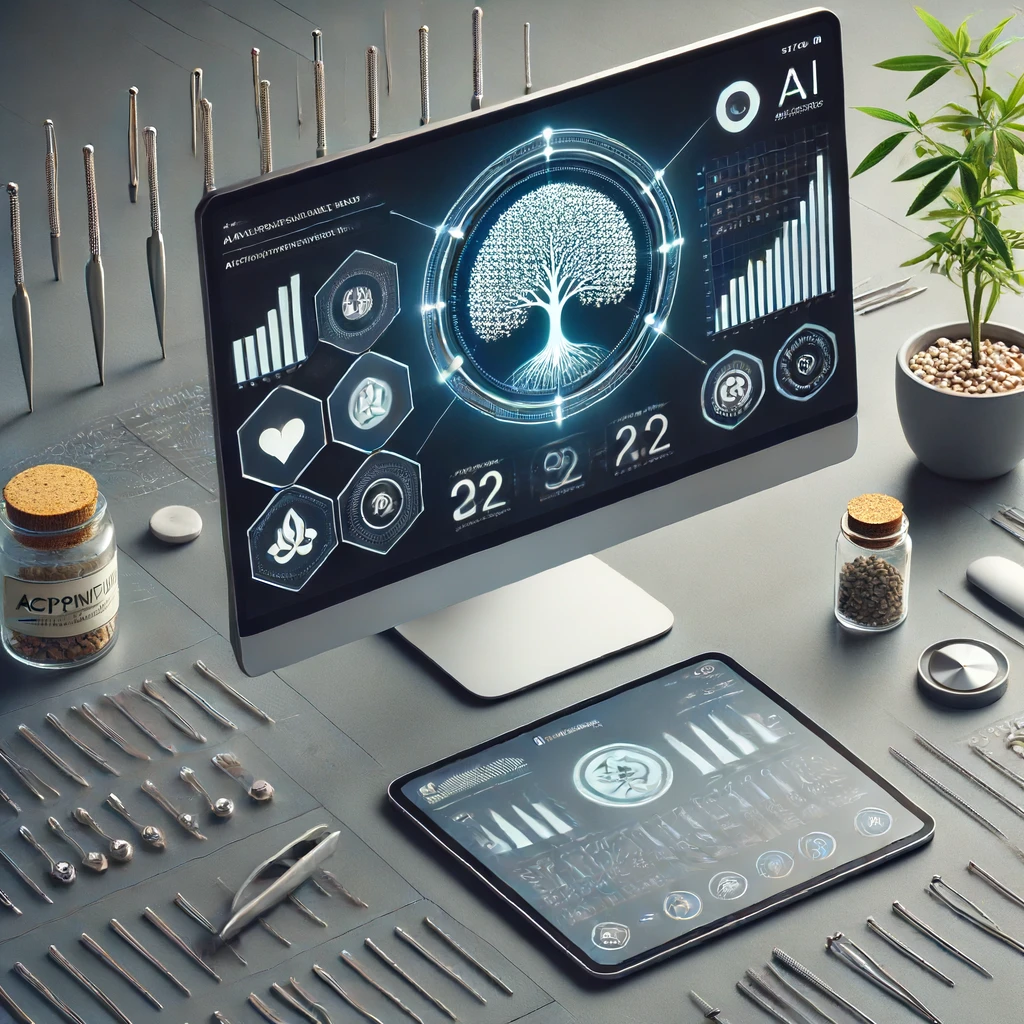
Integrating DakaiTCM's AI platform into an acupuncture practice can significantly enhance its various aspects, from patient interaction to administrative duties, and even continual learning for practitioners. Here are detailed ways how such technology can be beneficial:
1. Patient Intake and Preliminary Assessment:
* Automated Forms: Create intelligent forms that patients can fill out ahead of their appointment, ensuring all necessary information (medical history, current medications, etc.) is provided. AI can highlight areas that require the acupuncturist's attention.
* Symptom Analysis: Based on patient inputs, the AI can help in preliminary analysis, allowing practitioners to review possible concerns or patterns before the actual consultation.
2. Enhanced Patient Communication:
* Appointment Reminders: Send out automated reminders for appointments, follow-ups, and check-ins.
* Educational Content: Distribute information on acupuncture, such as what to expect, benefits, aftercare, and answers to frequently asked questions. This information can be personalized based on the patient's treatment history.
3. Treatment Planning:
* Predictive Analysis: Using data from patient history and prevalent medical research, the AI can assist in formulating effective treatment plans by highlighting similar case studies and outcomes.
* Continuous Monitoring: Post-treatment, AI can send automated check-ins to patients to report on their progress, helping in adjusting treatment plans as necessary.
4. Practice Marketing:
* Social Media Management: Regularly post engaging content, respond to queries, and manage online reviews to enhance the practice's online presence.
* Targeted Advertising: Use data-driven methods to identify potential markets, optimize advertising campaigns, and attract new patients.
5. Practice Management:
* Scheduling: Manage appointments efficiently to optimize acupuncturists' schedules, reducing wait times, and improving patient satisfaction.
Inventory Management: Keep track of supplies, notifying when stock is low, and even automating reorders.
* Billing and Invoicing: Streamline financial processes by automating billing, invoicing, and recording transactions.
6. Compliance and Documentation:
* Secure Records: Use AI to maintain and organize patient records securely, ensuring compliance with healthcare regulations.
Consent Management: Automate the process of obtaining and documenting patient consents, maintaining an easily accessible and up-to-date record.
7. Professional Development:
* Continuing Education: AI can recommend the latest research, studies, webinars, or workshops based on trending acupuncture practices and techniques.
Networking Opportunities: Identify relevant events, forums, or online communities for acupuncturists to connect with peers and thought leaders in the field.
8. Research Assistance:
* Case Study Compilation: AI can help compile and analyze case studies relevant to specific conditions or treatment methods, helping practitioners stay informed about the latest developments.
* Contribution to Research: Acupuncturists can use AI to document their own cases in a format suitable for academic sharing, contributing firsthand data to the field's growing body of research.
9. Feedback and Quality Improvement:
* Patient Feedback: Automatically collect feedback post-appointment to gain insights into patient satisfaction and areas needing improvement.
* Service Quality: Analyze trends in feedback to improve service quality, treatment effectiveness, and overall patient experience.
By incorporating these AI-driven practices, acupuncturists can create more efficient, responsive, and patient-centric services. Not only does this technology handle administrative tasks, allowing practitioners to focus more on patient care, but it also provides valuable insights and tools for business growth, professional development, and enhanced patient communication.

